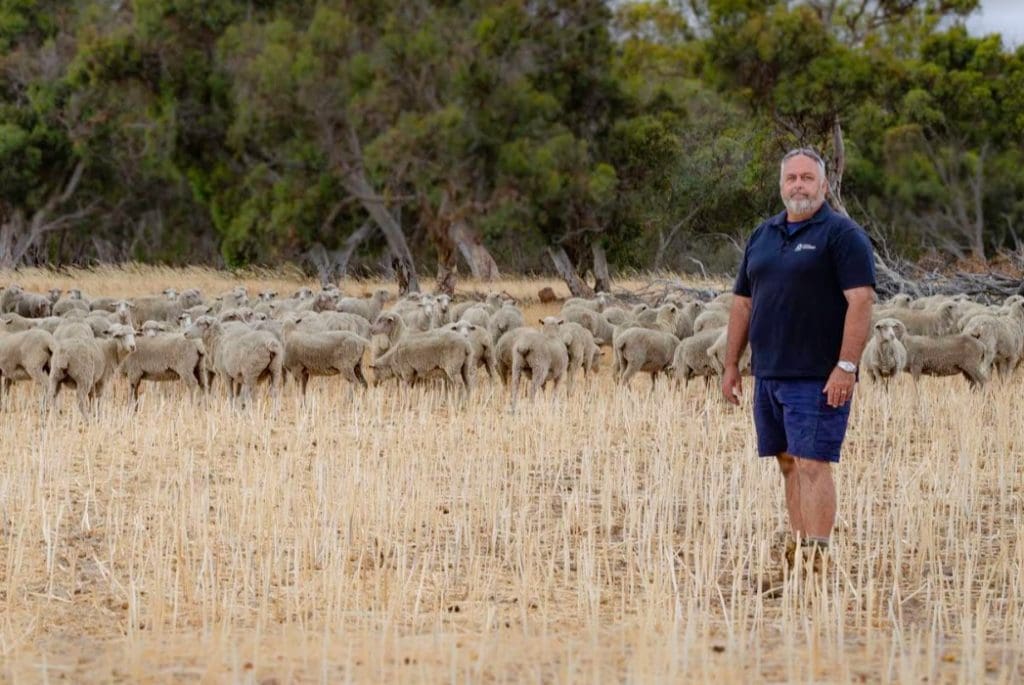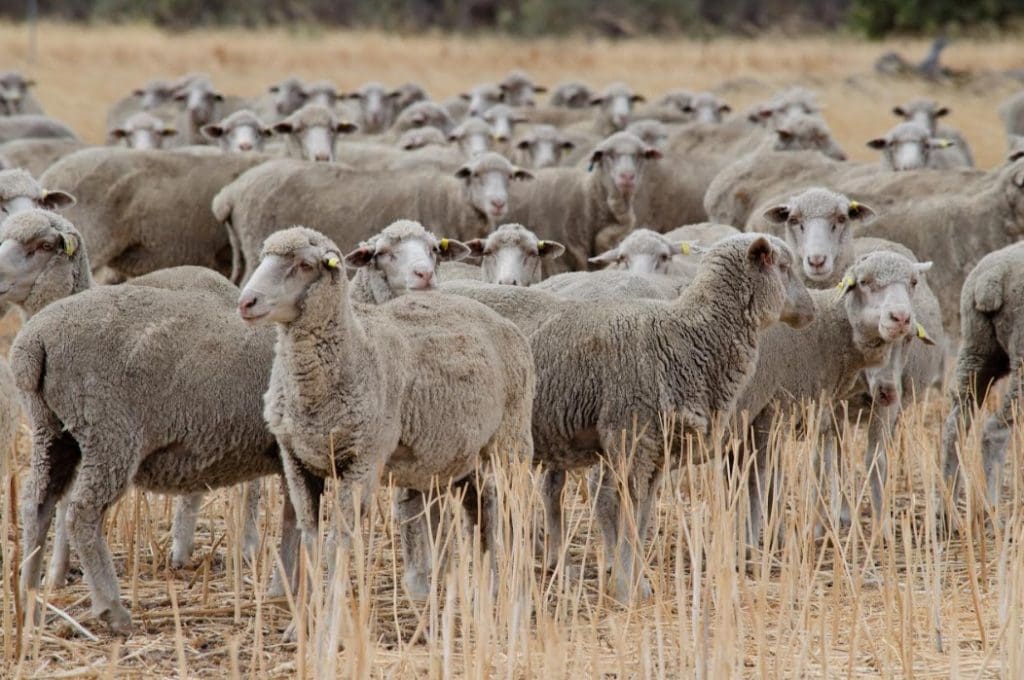
Katanning Research Facility farm manager Gavin D’Adhemar with the Rylington Merino flock.
AUSTRALIA’S most worm-resistant Merino flock is to be offered for sale by tender by Western Australia’s Department of Primary Industries and Regional Development.
Tenders will be received for the renowned Rylington Merino flock until the close of business on 28 February 2020.
The department intends to sell the 20-21 micron Rylington flock as a whole. Mulesing of the plain-bodied flock ceased 11 years ago. The average Worm Egg Count (WEC) sheep breeding value for sheep in the flock is -80. For the last two years the WEC of Rylington sheep has never gone over 200 eggs/gram. The average annual greasy fleece cut of the hogget and mature ewes has been about four kilograms.
The department said the flock has played a vital role in worm resistance research after being established in 1988 in response to industry concerns about reduced drench efficacy. It is today the most worm-resistant Merino flock in Australia, the department said.
Department livestock research director Bruce Mullan said the flock consisted of 432 adult ewes, 21 rams and was registered as a Merino stud.
“Over the years this flock has contributed significantly to our understanding of the underlying genetic and physiological mechanisms of worm resistance.
“It has helped the department make crucial contributions in developing recording and measurement protocols of faecal worm egg counts, used to assess intestinal worm burdens in sheep, for the WA environment,” Dr Mullan said.
“The research demonstrated that it was feasible to breed worm-resistant sheep and developed the methodology for Australian Sheep Breeding Values (ASBVs), which are now available to all sheep producers, to breed sheep that are genetically resistant to internal parasites.
“It also showed the production and management benefits of having worm-resistant sheep compared to non-worm resistant sheep with the same genetic potential.”
The flock includes 218 adult ewes in the age groups – 11 2013 drop, 44 2014 drop, 6 2015 drop, 26 2016 drop and 130 2017 drop. There are 214 2018 unjoined hoggets and 21 rams – 2 2014 drop, 9 2016 drop, 5 2017 drop and 5 2018 drop.
Drench failure prompted Rylington flock initiative

Rylington Merino ewes
Dr Mullan said the department was retaining its resource flock and focusing on important feed efficiency research, harnessing a new purpose-built facility at Katanning, which is nearing completion.
Department senior geneticist Johan Greeff, who has worked closely with the Rylington flock, said in the 1980s it became clear that the available drenches were losing their effectiveness as worms were becoming more resistant.
“Established using a funding grant from the Australian Wool Corporation, ninety WA sheep farmers joined this program and each donated eight ewes to establish this flock in WA,” Dr Greeff said.
“It was hosted on the Rylington Park farm in the Boyup Brook district until 1998, when it was transferred to the department’s Mt Barker research station.
“In 2015, the flock was transferred to the Katanning Research Facility.”
The flock will be yarded for inspection at the facility on 24 February, from 10am-2pm.
Click here for details on genetic trends in the Rylington flock or search Sheep Genetics’ MERINOSELECT here for individual animal ASBV data.
For more information about the flock, please contact Katanning Research Facility farm manager Gavin D’Adhemar at 0427 082 203.

HAVE YOUR SAY